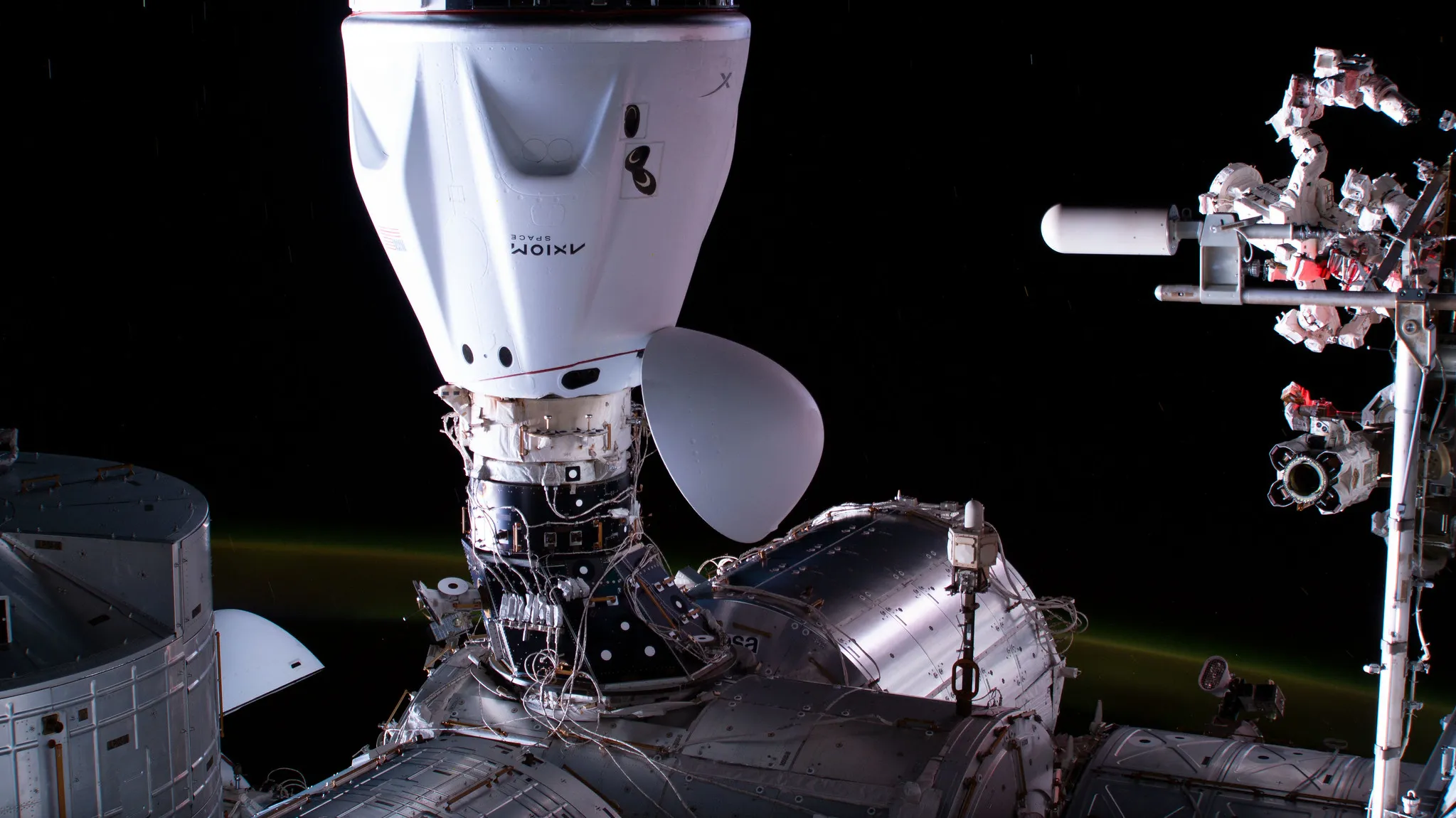NASA, in collaboration with Axiom Space and SpaceX, has rescheduled the undocking of Axiom Mission 3 from the International Space Station (ISS) to Monday, Feb. 5, due to unfavorable weather conditions off Florida’s coast. The initial plan for Saturday, Feb. 3, has been postponed, with a weather reassessment scheduled for 8 p.m. EST on Saturday. Additional updates will be provided by NASA.
Live coverage will be offered for the undocking and departure of Axiom Mission 3 (Ax-3), featuring a four-member astronaut crew including Michael López-Alegría, Walter Villadei, Marcus Wandt, and Alper Gezeravci. The undocking is anticipated to occur no earlier than 6:05 a.m. EST on Saturday, Feb. 3, as the SpaceX Dragon spacecraft departs from the ISS’s Harmony module.
NASA’s coverage will encompass joint operations with Axiom Space and SpaceX, beginning with hatch-closure preparations at 4 a.m. The undocking coverage will resume at 5:45 a.m. The broadcast will be accessible on NASA+, NASA Television, the NASA app, YouTube, and the agency’s website, offering comprehensive streaming options.
The conclusion of the approximately two-week mission by the Axiom crew aboard the ISS will be highlighted by their return journey in the SpaceX Dragon, carrying over 550 pounds of cargo, including NASA hardware and data from more than 30 experiments conducted during the mission. Splashdown is expected around 7 p.m.
Ax-3, recognized as the third all-private astronaut mission to the ISS, launched successfully from NASA’s Kennedy Space Center on Jan. 18. The coverage schedule for Ax-3 undocking and departure is subject to operational changes, with NASA’s coverage concluding about 30 minutes after undocking. Axiom Space will continue coverage of Dragon’s re-entry and splashdown on their website.
Aligning with NASA’s objective to cultivate a commercial market in low Earth orbit, the Ax-3 mission represents a pivotal step in advancing space exploration. The collaboration between NASA, Axiom Space, and SpaceX enhances human spaceflight capabilities and broadens access to the ISS, fostering opportunities for individuals, scientific endeavors, and commercial ventures in space.















































